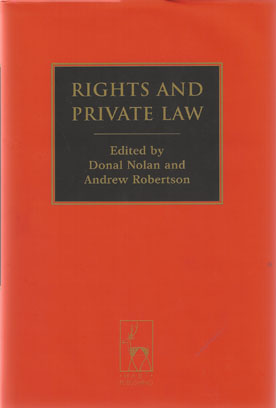
The notion of rights is foundational to private law. What is distinctive about private law is that it recognises and gives effect to rights that individuals have against other individuals. In recent years a strand of thinking has developed in private law which has come to be known as 'rights-based' analysis.
This analysis seeks to develop an understanding of private law obligations which is driven by the recognition of the rights we have against each other, rather than by other influences on private law, such as the pursuit of community welfare goals. A rights-based understanding of private law sees it as guided primarily or exclusively by notions of interpersonal morality, rather than the pursuit of community welfare goals.
Notions of rights are also assuming greater importance in private law in other respects. Human rights instruments are having an increasing influence on private law doctrines. In the law of unjust enrichment, an important debate has recently begun on the relationship between restitution of rights and restitution of value.
The collection will make a very significant contribution to debate about the role of rights in private law. It includes essays by leading private law scholars addressing fundamental questions about rights in private law as a whole and within particular doctrines and fields of private law. The collection includes both advocates and critics of rights-based approaches and provides a thorough and well-balanced analysis of the topic.